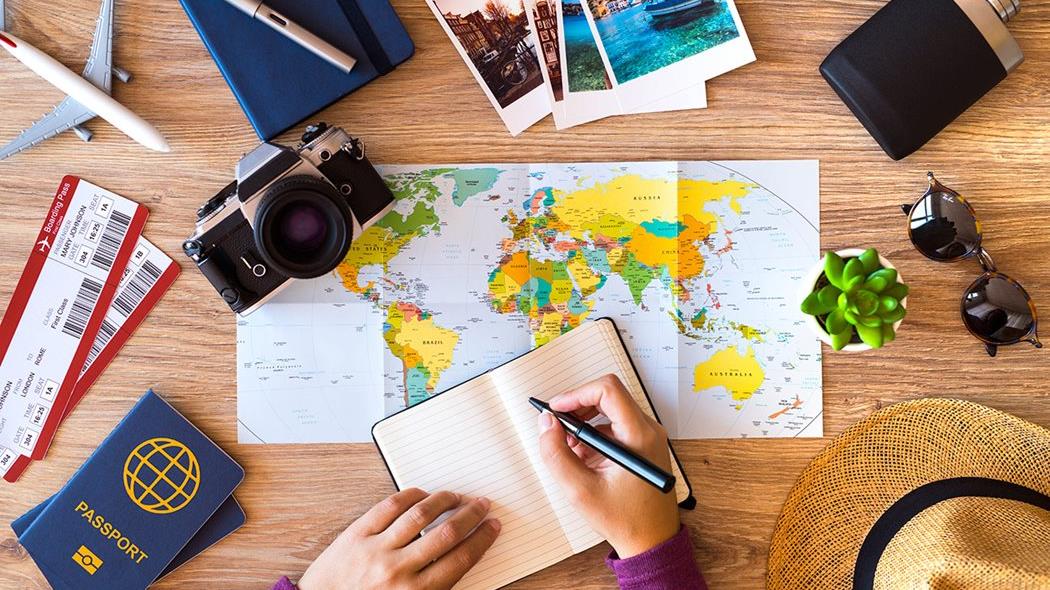Do you love to travel and write and write about travel? Take note because we give you a few tips to get the most out of your passions, especially if you still aren’t familiar with https://essayswriter.org/, which will help with writing texts and papers while you are when you are tripping.
Since the beginning of time, human beings have had an adventurous spirit. Often, the desire for survival has been necessary, which has pushed us to undertake the journey. Still, there have been many adventurers and explorers who, for centuries, have felt the need to leave the comforts that surrounded them to fill in those blank maps with names, even at the cost of their health, material goods, or their lives.
Marco Polo, Magellan, Columbus, Vasco de Gama, Livingstone, Amundsen, Scott… These are names of famous travelers whose adventures have filled countless pages in ancient and modern books.
Nowadays, however, travel has become more commonplace, and thanks to technology, we have many tools at our disposal to narrate our experiences. Thus appeared the figure of the travel blogger, who joined the travel writer, something more traditional and with certain basic differences.
Check Out These Tips On How To Become A Good Travel Writer:
1. Read A Lot
It doesn’t fail. Every good writer or communicator has been (and is) a good reader. This is a double-edged sword because the styles of our favorite writers end up leaving their mark on us, and we adopt part of their vices. You can read about any genre, but if you are passionate about traveling and writing about it, you will usually also enjoy reading about the adventures of others worldwide. From those books, you can get ideas for new destinations.
2. Take Notes On Your Travels
While we don’t doubt your ability to memorize, there are always little details of a trip that can get lost in the sea of memories. This is especially true on longer trips. When you spend months backpacking across different continents, some moments may not leave as much of an impression as they occur, but they could make for a good story when you take a calmer, retrospective view when you get home and get ready to narrate.
You don’t need to describe each day in detail, but it’s good to write down the most important events. This will guide you when you want to develop the story.

3. Take A Chance With Destinations
It is true that, depending on your attitude and many other factors that you cannot control, any trip can become an adventure worth telling. But let’s not fool ourselves. The probability of that happening to you while enjoying an organized trip in any European capital is infinitely lower than that resulting from a trip with your backpack through sub-Saharan Africa.
Unless you are a great master of the art of the pen, you need good inspirational material to create good stories. Within your tastes, look for countries or regions that you think can offer you situations and sensations worth capturing in prose.
The same goes for the type of activities you do during your trip. A visit to a museum can be told in many interesting ways. Still, a kayaking trip down a river, a safari, a visit to a volcano, or a day hike through mountains full of untouched villages will inspire potential readers more.
4. Narrate With Grace
Having a great trip to have a good travel story is not enough. You have to know how to tell things, and your adventure may have been greater than Phileas Fogg’s, but when it comes to conveying it, you may not be able to give it the sparkle it deserves.
Remember that you are narrating a journey. Normally, people who read it are looking for inspiration, to have a good time, to be transported to that other world you propose, or, why not, to have a good laugh. There is nothing healthier than laughter. Or a few things. Leave aside giving too many details of dates, pure and simple events, practical data… That’s what travel guides and history books are for.
Tell it as if you were telling it to a friend. Close your eyes and relive the moment you are capturing on paper (or on your computer screen) and let the words flow. Inspire, excite, and make them laugh or cry. Get them to join you on your adventure.

5. Be Constant
Writing, in any format, requires great perseverance. Often it is not easy due to lack of inspiration or time, but other times we let ourselves be carried away by laziness or indolence. Don’t let this deter you. The more you write and stay consistent, the easier it will be to put your experiences into words.

6. Choose The Right Time To Write
The most appropriate moment to tell the story of a trip may differ according to taste. Some people prefer to do it in the heat of the moment while things are happening. The result is more impacting, but we will not always be able to focus on the trip itself if we look for time and means to write.
Others use the notes they have taken to relate everything as soon as the adventure is over. In a third group are those who prefer to let all their feelings about what they have experienced settle to, after a while, look back and recount it with perspective.
No one style should triumph over the other, but personally, I prefer the second one. While you are traveling, you should focus on living the experience to the fullest and take brief notes so that you don’t forget anything. Then, you start to tell about it when you get home and still with the emotion of what you have experienced fresh in your soul.
7. Choose A Common Thread
Any self-respecting story must have an introduction, middle, and end. You have to be very good -and have great experiences- so that a group of stories with no head or tail can hook the reader. It’s best to tell your journey with an underlying story. There must be a common thread that keeps your reader on their toes.

8. Have Some Bad Luck On Trips
The police have left me naked on the border between Uruguay and Argentina because they thought I was smuggling cocaine; I have been lost in the Ecuadorian jungle after our rafting boat capsized and broke; I have been in police stations in India and Colombia because of misunderstandings arising from fortuitous coincidences; fleas, ticks, bedbugs have bitten me; I have been robbed… And I could go on with a long list of “misfortunes,” which, if you know how to use them, make for very good stories. In these types of incidents, if everything ends well, you will remember them with a smile on your face as you transcribe them. Top-notch material with no appeal to the imagination.
9. Enjoy It
In most cases, writing about your travels will never become more than a hobby. Perhaps this is why you must enjoy doing it. You should not see it as an obligation but as a desire to share your stories with anonymous people so that they can have a good time or be inspired or helped in their own adventures.

Also, don’t miss out on these wedding vendors for your D-day.













Comments are closed.